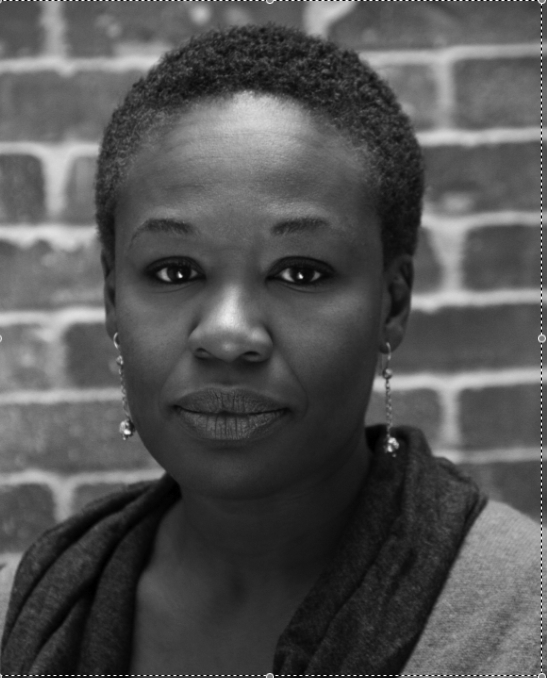The Hartford Courant reported on a study of the Wangunks, the indigenous people of Middletown and Portland, Conn., by members of a Wesleyan course taught by J. Kēhaulani Kauanui, associate professor of anthropology, associate professor of environmental studies. Eleven students spent a semester in the archives of the Middlesex County Historical Society studying the Wangunks as part of a course on local Native Americans: "Decolonizing Indigenous Middletown: Native Histories of the Wangunk Indian People." Four of those students presented their research at a March seminar at Russell Library. According to the story: The Wesleyan students made use of a number of sources to piece together a…
Anna Fox '19 wrote an essay in The Forward about Wesleyan's Jewish community and the campus political climate surrounding the Israel Palestinian conflict. Though, as a Zionist, she was anxious about coming to a campus with a pro-Palestine reputation, she was met with a pluralistic community, "diverse opinions" and "students exchanging ideas thoughtfully—though rarely in agreement—and leaving the conversations with respect, compassion and nuanced approaches to their ideas." She writes: The passion I see in my peers who engage with Israeli-Palestinian politics, regardless of their political affiliations, gives me so much hope about the future of the Holy Land. My voice is not…
James McGuire, professor and chair of government, professor of Latin American studies, is the author of a new op-ed titled, "Is Brazil Better Prepared than the U.S. to Fight Zika?" Brazil is ground zero for the recent wave of Zika infections. McGuire argues that the country "is better prepared to fight Zika than many people think—and is, in some ways, better prepared to fight Zika than the United States." The Zika virus is difficult to fight, and Brazil faces some major obstacles, including a deep economic crisis, political turmoil, and an ongoing battle against other infectious diseases. Still, he writes,…
The Hartford Courant featured the 100th anniversary of Wesleyan's Van Vleck Observatory, which will be celebrated with an exhibit and a series of events this month and next. The "Under Connecticut Skies" exhibit, located in the observatory library, will open May 6 from 10 a.m. to 6 p.m., and will remain open indefinitely during the observatory's public hours. Amrys Williams, visiting assistant professor of history, who has been working on the exhibit since last year, said the Van Vleck Observatory and the astronomy department building are part of the exhibit, telling the story of how astronomers did their work 100 years ago.…
This spring, Allison Orr, the Menakka and Essel Bailey '66 Distinguished Visiting Scholar in the College of the Environment, is leading a group of Wesleyan students in partnering with the city of Middletown's Water and Sewer Department to develop a unique performance that will debut at the Feet to the Fire: Riverfront Encounter on May 7. The performance starts at noon at Harbor Park. According to this story in The Middletown Press, Orr has long used "her choreography talent to expose the work of those who would otherwise go unnoticed." She is the artistic director of Forklift Danceworks, and is known for "Trash Dance,"…
Aetna has tapped two Wesleyan alumni for recent high-level hires. Thomas Sabatino Jr. ’80 is joining the insurance giant as executive vice president and general counsel. Sabatino worked most recently at Hertz Global Holdings as its chief lawyer, and previously in pharmaceuticals and medical products. He joins Gary Loveman ’82, who in September became Aetna’s corporate executive vice president and president of Healthagen, the company’s consumer business. Loveman, a former management professor at Harvard Business School, had been chairman and CEO of Caesars Entertainment Corp. Dan Haar ’81, business editor of the Hartford Courant, wrote that both Hertz and Caesar’s…
In a story about the spread of microgrids in Connecticut, The Hartford Courant points to Wesleyan as a leader. Wesleyan's microgrid was the first project to come online under the inaugural round of Connecticut's first-in-the-nation statewide microgrid pilot program. According to the Courant, the $23 million state program to create a network of mini power generation plants across Connecticut was prompted by Tropical Storm Irene and Hurricane Sandy, which caused widespread power outages, flooding and other problems. In the case of a widespread power outage, microgrids can continue providing power to water treatment plants, emergency shelters, hospitals, police and fire stations. The Courant interviewed Alan Rubacha, director of Wesleyan's…
In her latest essay on The Huffington Post, Professor of Anthropology Gina Athena Ulysse takes on the matter of U.S. foreign food aid policy vis-a-vis Haiti, which she writes is undermining farmers in the Caribbean nation. She focuses on mamba, the Kreyòl word for peanut butter, which she fondly recalls being made by locals when she was growing up in Haiti. "To me, mamba is as quintessentially Haitian as basketball is (North) American. Now, it faces risks as another charitable gift of food aid undermines Haitian autonomy by threatening to bench local farmers’ peanuts production, our cultural practices, and even our tastes," she writes. "This is not…
Nagasaki: Life after Nuclear War, by Susan Southard '78, has been awarded the J. Anthony Lukas Book Prize, administered by the Columbia University School of Journalism and Harvard University’s Nieman Foundation for Journalism. One of three annual Lukas Prizes honoring the best in American nonfiction writing, the Book Prize is given to a book exemplifying "the literary grace, commitment to serious research, and the social concern that characterized the distinguished work of the award's namesake, J. Anthony Lukas." The prize comes with a $10,000 award. "I couldn't be more honored that Nagasaki: Life after Nuclear War has been included among the remarkable books…
In May 2009, Bill Rodgers ’70 – a decorated cross-country, and track and field athlete at Wesleyan – was featured in an article in Runner’s World magazine by Steve Rushin. Following graduation, Rodgers became one of the best-known and most popular American marathon runners ever. The feature takes a look at Rodgers’ life and his successes, which include four wins in the Boston Marathon, four consecutive wins in the New York Marathon, and twice qualifying for the U.S. Olympic team. In all, Rodgers won more than 20 marathon events in a span of 11 years (1973-1983). In addition to his athletic success,…
The Atlantic education writer Alia Wong turned to President Michael S. Roth for his perspective in a three-part series on "Where the College Admissions Process Went Wrong." One critical problem is that the intense focus on the college application process means that rather than preparing themselves for college or for life, students are preparing simply for the "moment of admission." “What we want is to have students who want to come and work hard because they can leverage their experience at the university and do something after they leave,” said Roth. “One of my predecessors used to say to students, ‘If these turn…
NPR’s All Songs Considered featured the former Wesleyan band Overcoats in its preview of the 2016 South by Southwest Music festival in Austin Texas. Overcoats, made up of Hana Elion ’15 and JJ Mitchell ’15, have made the leap from small on-campus concerts to performances in New York City's Mercury Lounge and the Longitude Festival in Ireland. Currently, Overcoats resides in New York City where they are performing and recording new music in studio. Overcoats describe their style as “combining electronic backdrops with soaring, harmonic intimacy — a sort of Chet Faker meets Simon & Garfunkel.” Their songs "draw strength from…




